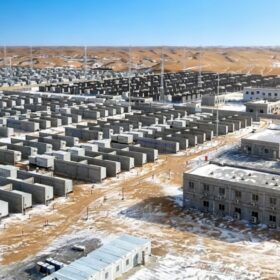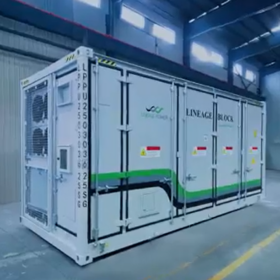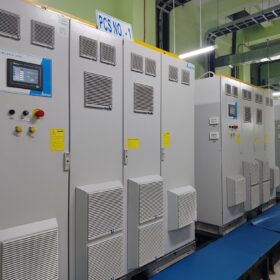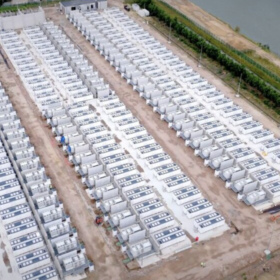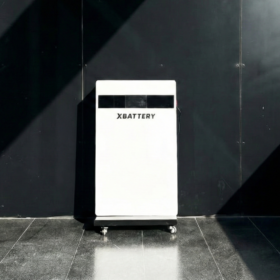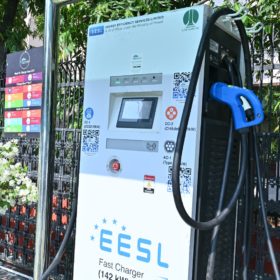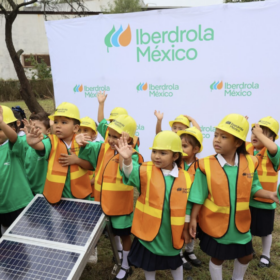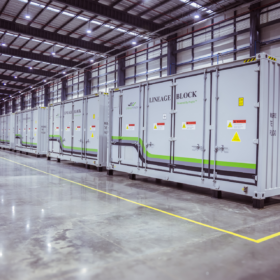Vanadium flow and lithium-ion combine in world’s largest grid-forming hybrid storage plant in China
China brings online 300 MW/1,200 MWh grid-forming energy storage facility in Inner Mongolia, integrating lithium-ion and vanadium flow battery technologies.
Pace Digitek’s arm Lineage Power delivers 100th BESS container
Lineage Power, the energy storage arm of Pace Digitek Ltd, has delivered its 100th containerized battery energy storage system (BESS).
Delta Electronics deploys 6.4 MWh/4 MW battery storage solution for India’s first underground metro
Kolkata Metro has commissioned a 6.4 MWh/4 MW battery energy storage system (BESS) at the Central station of its Blue Line, setting a new benchmark for large-scale battery storage adoption in metro networks. Executed by Delta Electronics India, the system features all critical components designed and manufactured in-house, including the power conversion system, energy management system and battery racks.
SolarPower Europe issues due diligence guide for PV-BESS
SolarPower Europe has released new technical due diligence guidelines for utility-scale solar-plus-storage projects, covering risk, engineering and lifecycle standards for co-located PV and battery systems.
Xbattery launches 5 kWh scalable energy storage system for residential, small office use
Hyderabad-based startup Xbattery has launched a 5 kWh scalable energy storage system (ESS) for homes and small offices. The lithium iron phosphate (LFP)-based system can be scaled up to 15 kWh by adding additional battery units.
India’s EV sector secured INR 2.23 lakh crore in investments, just 18% of the capital needed by 2030: IEEFA
IEEFA states that bridging the INR 10.3 lakh crore investment gap over the next five years will require moving beyond traditional subsidy-led approaches toward structural risk-sharing mechanisms that lower the cost of credit and attract private capital in the electric mobility sector.
Mexico mandates social impact reviews for BESS projects
New rules from Mexico’s Secretaría de Energía require battery energy storage systems (BESS) to submit social impact assessments for the first time, with stricter obligations above 250 MWh.
Waaree Energies arm signs 50 MW alkaline electrolyzer agreement with ZFI
Waaree Clean Energy Solutions will deploy, own and operate alkaline electrolyzer stacks for Zero Footprint Industries Ltd’s decentralized green hydrogen projects across northern India over the next five years. The renewable-powered hydrogen produced will support decarbonization of process industries and inland transport applications.
From panels to complete energy systems: The evolution of India’s rooftop solar market
Rooftop solar is moving from being a supplementary solution to becoming a central component of India’s energy architecture. The next phase of growth will not be defined by panel installations alone but by how effectively generation is integrated with storage, digital intelligence, and grid infrastructure.
Pace Digitek secures INR 1,587 million telecom battery order from Reliance Industries Ltd
Pace Digitek Ltd’s arm Lineage Power has received an order from Reliance Industries Ltd for the supply of high-capacity lithium-ion battery packs. Under the agreement, Lineage Power will manufacture and supply 50,000 units of 48V 15S1P 314Ah Lithium-Ion battery packs to provide backup power for telecom loads.
